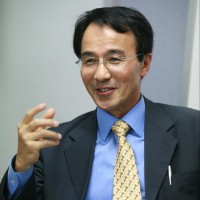1. Most important 5 case laws and why?
A. Online Real-Name Case, Constitutional Court of Korea, 2010 Honma 47, Aug. 23, 2012 [invalidating the Act on Promotion of Information and Communications Network Utilization and Information Protection, Etc., which required Koreans to use their real names on Internet forums];
B. Broadcasting of Compulsory Apology Case, Constitutional Court of Korea, 2009 Honga 27, Aug. 23, 2012 [invalidating the Broadcasting Act, which required broadcasters to apologize for news reporting that violated broadcasting rules and regulations];
C. Electioneering via the Internet and SNS Case, Constitutional Court of Korea, 2007 Honma 1001, Dec. 29, 2011 [invalidating, albeit limitedly, the Public Official Election Act, which prohibited electioneering through the Internet and the Social Network Service];
D. Crime of Insulting Case, Constitutional Court of Korea, 2012 Honba 37, June 27, 2013 [upholding the Criminal Act, Art. 311, which states: “A person who publicly insults another shall be punished by imprisonment or imprisonment without labor for not more than one year or a fine not exceeding 2 million won];
E. News Media’s Disclosure of Illegal Wiretapping or Recording by Third Parties Case, Supreme Court of Korea (en banc), 2006 To 8839, March 17, 2011 [disclosure held “unjustifiable” under the Criminal Act, Art. 20, which states: “An act which is conducted … in pursuance of accepted business practices or other action which does not violate the social rules shall not be punishable”].
2. Trends in terms of issues/decisions?
Koreans are more litigious than ever. Consider their assertive attitude to their freedom of speech and the press “a late-talking toddler who is never quiet for an instant once he finally gets started.” Free speech jurisprudence has been recognized as an essential element of participatory politics in Korea since 1987. The Constitutional Court of Korea has addressed a host of issues relating to freedom of expression and information. More often than not, the Court has been remarkably freedom-sensitive in ruling on free expression vs. national security, reputation, and other societal and individual interests. Political speech, defamation, privacy, right of reply/correction, digital freedom, freedom of the press (institutional and journalistic), broadcasting and cable, obscenity and pornography, advertising, access to information, etc., have attracted attention from the Constitutional Court and other courts, including the Supreme Court of Korea.
3. Are court deliberations taking account of international, regional norms? Other jurisdiction?
International and foreign legal influence on Korean law has been considerable. For example, former President Kang-Kook Lee of the Constitutional Court of Korea stated in 2013 that his court had benefited from the “accumulated practice and wisdom” of advanced democracies like the United States during its formative period. A Korean district court in the mid-1960s applied the “clear and present danger” doctrine of Schenck v. United States, 240 U.S. 47 (1919). More recently, in the Online Real-Name case of 2012, the Constitutional Court of Korea cited the Internet regulations of the United States, England, Germany, and Japan. In 2013, in their dissenting opinion in the Crime of Insulting case, Justices Park Han-Chul, Kim Yi-Su, and Kang Ilwon of the Constitutional Court cited American, French, and German laws on hate speech, group libel, and “fighting words.” They also referenced the International Covenant on Civil and Political Rights (ICCPR) and the ICCPR Human Rights Committee’s “General Comment” of July 11-29, 2011, in addition to the U.N. Special Rapporteur’s 2011 U.N. Human Rights Council report on freedom of expression in South Korea. The Universal Declaration of Human Rights, the ICCPR, and German law have directly influenced Korean law on the “right to know,” “notice of apology,” and the “right of reply,” respectively.
4. How do court decisions influence information flows, expression, media, and journalism?
South Korea is a functioning rule-of-law nation where the constitutional guarantee of freedom of speech and the press is firmly entrenched. Court decisions, especially those of the Constitutional Court of Korea, are irrefutably impactful. It is almost unthinkable that the National Assembly or the executive branch, especially the Blue House, would flout the Constitutional Court’s decisions. When statutes are struck down by the Constitutional Court wholly or partially, the National Assembly can respond by abolishing or revising them. In the late 1980s, the Court read access to government records as a right into Article 21 of the Constitution on freedom of expression. This landmark freedom-of-information case led the National Assembly to pass the “Act on Disclosure of Information by Public Agencies,” the first of its kind in Asia. Cyberjournalism is more widely accepted in Korea, the world’s most wired nation, than in any other country. Ohmynews, an open-source news reporting website, embodies the “We Are All Journalists” motto in action. The judicial expansion of freedom of expression and information deserves credit for the vociferous Korean journalism.

